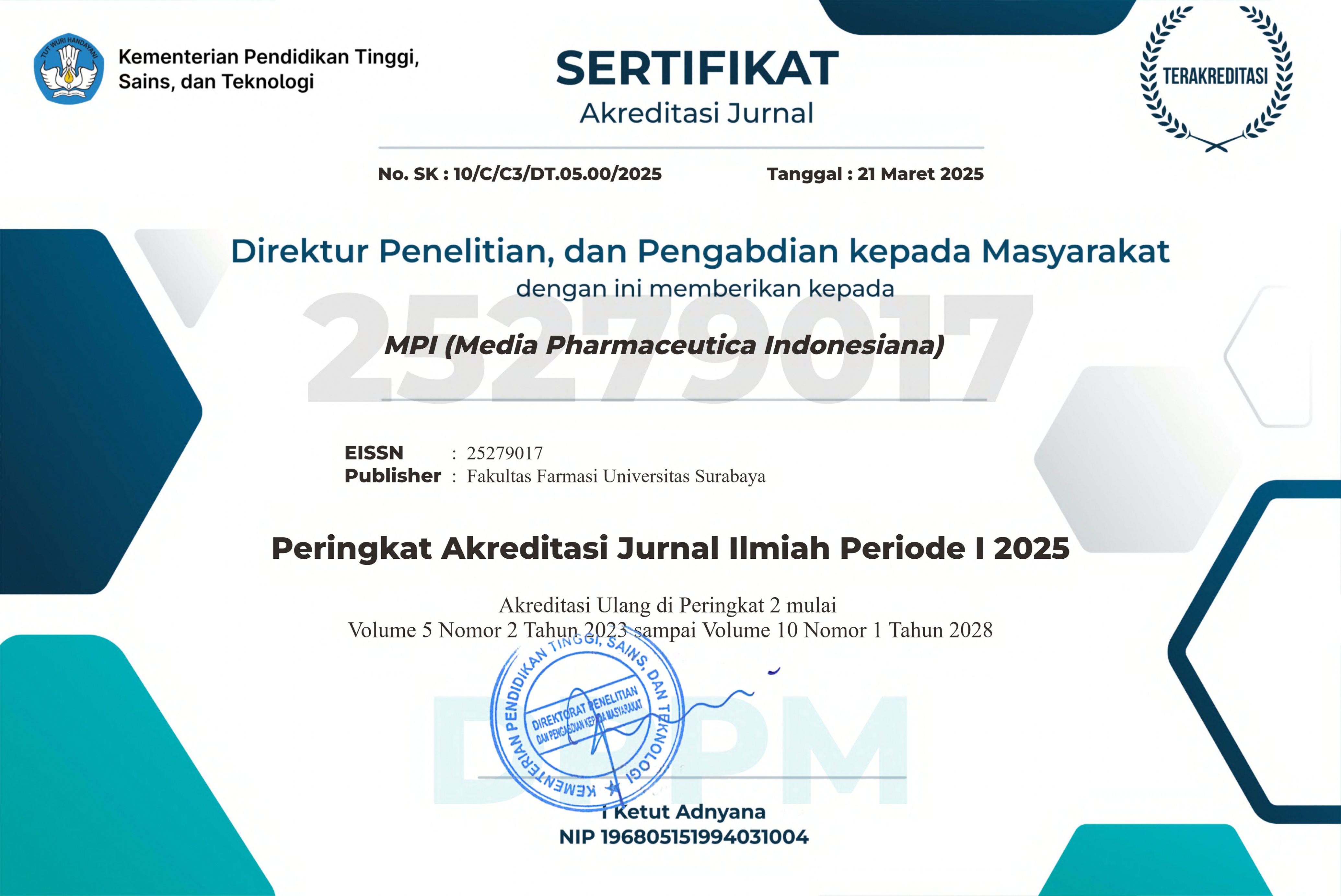Pengaruh Pemberian Edukasi Gizi dan Kapsul Serbuk Daun Kelor (Moringa oleifera L.) terhadap Kenaikan Kadar Hemoglobin Remaja Putri di Universitas Pakuan
 Abstract Views:
2547 times
Abstract Views:
2547 times
 PDF Downloads:
3002 times
PDF Downloads:
3002 times
Abstract
Anemia is a condition where the hemoglobin (Hb) level is lower than 12 g/dL. Teenagers are the most susceptible group experiencing a decrease in hemoglobin, especially teenage girls because they get menstruate so that they lose a lot of iron every month. It causes them become easily tired, drowsiness, dizziness, rapid concentration loss, then clearly inhibits the learning process and achievement. Natural ingredients as an alternative to increase Hb which is easily obtained and cultivated are Moringa oleifera L. leaves since they contain protein, vitamin C, and iron. This study aims to evaluate an increase of hemoglobin levels and the knowledge of anemia after giving education and capsules of moringa leaves powder. This is true experimental study with pre and posttest design. The respondents were female students with anemia which were divided to the intervention groups (getting education and kelor) and control groups (getting education and placebo). It was carried out for 30 days. The results showed that education and Moringa leaf powder capsules significantly increased hemoglobin levels by 1.76 ±0.80 g/dL, while the increase in the education group was 0.72 ± 0.97 g/dL. It can be concluded that the education and Moringa leaf powder capsules can significantly increase the knowledge of anemia and Hb levels.
Downloads
Articles published in MPI are licensed under a Creative Commons Attribution-ShareAlike 4.0 International (CC BY-SA) license. You are free to copy, transform, or redistribute articles for any lawful purpose in any medium, provided you give appropriate credit to the original author(s) and MPI, link to the license, indicate if changes were made, and redistribute any derivative work under the same license.
Copyright on articles is retained by the respective author(s), without restrictions. A non-exclusive license is granted to MPI to publish the article and identify itself as its original publisher, along with the commercial right to include the article in a hardcopy issue for sale to libraries and individuals.
By publishing in MPI, authors grant any third party the right to use their article to the extent provided by the CC BY-SA license.

 DOI:
DOI:










